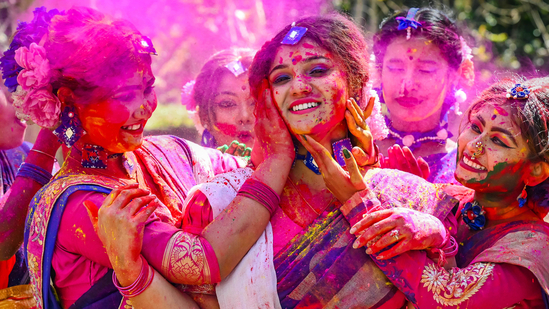Side effects of colouring hair
Side effects of colouring : There are many disadvantages of applying henna to hair . Mehndi has long been a favorite natural dye for hair coloring. Used for centuries, this dye is loved for its ability to give hair a deep reddish-brown color as well as condition them. Unlike synthetic colors, mehndi is often considered a safe and chemical-free option. However, using mehndi frequently to color hair can have adverse effects that are often overlooked. It is natural but its excessive use is not considered good for hair. So let’s also know some side effects of applying mehndi frequently.
-dryness and brittleness
-change in hair texture
-hair thinning and breakage
-allergies scalp sensitivity
-other colors do not stick
dryness and brittleness– Excessive use of henna can cause excessive dryness in the hair. The tannins present in it can strip out the natural oils from the hair, making the hair dry and brittle. At first, the hair may get a smooth texture but repeated application of henna can strip the moisture from the hair, increasing the risk of hair breakage and split ends.
change in hair texture- Regular use of henna can change the natural texture of hair. Those who have naturally soft and silky hair may experience rough and dry hair over time . Henna coats the hair shaft with its color, making the hair appear thicker.
hair thinning and breakage- There is a misconception that henna strengthens hair, but excessive use can have the opposite effect. The dryness of henna can weaken the hair shaft, causing hair to become brittle and prone to breakage. Continuous use can lead to thinning and hair fall as the scalp is unable to retain its natural moisture and nourishment.
allergies scalp sensitivity- Even though henna is a natural product, it can cause an allergic reaction in some individuals. Constant exposure to it can cause scalp irritation, redness, itching and rashes. In some people, it can cause contact dermatitis which is an inflammatory skin condition. For people with sensitive scalps this reaction can be more, so it is important to do a patch test every time before applying henna.
colors do not stick –Repeated use of henna can cause the color to build up on the hair, producing uneven and unnatural colors. Since henna does not fade quickly, repeated application can result in dark and sometimes patchy colors that can be difficult to correct. Unlike chemical dyes, the stable color of henna makes it difficult to lighten or remove completely without damage.
ALSO READ ; Benifits of applying Raw Milk on your face







